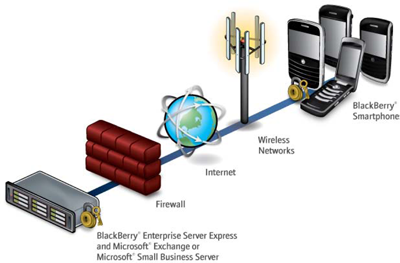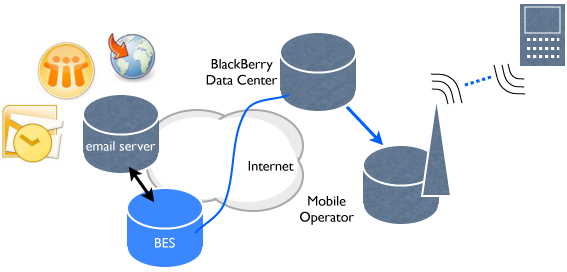 Early in the development of the handheld mobile device market, pioneered by the Apple Newton, the Palm Pilot and other PDAs a decade or more ago, the question about how to manage more than one of the devices and all that entails was raised. Questions like how to secure the data, backup the configuration, remotely adjust the configuration, remotely wipe the corporate data off a lost or stolen device and otherwise help the user spend their time using the device to improve their productivity instead of hurting their productvity.
Early in the development of the handheld mobile device market, pioneered by the Apple Newton, the Palm Pilot and other PDAs a decade or more ago, the question about how to manage more than one of the devices and all that entails was raised. Questions like how to secure the data, backup the configuration, remotely adjust the configuration, remotely wipe the corporate data off a lost or stolen device and otherwise help the user spend their time using the device to improve their productivity instead of hurting their productvity.
Certainly the scale of the challenge of mobile device management (MDM) and otherwise safeguard the company’s investment in the device is compounded as the number of remote mobile devices grow. Part of the challenge with mobile devices is that they are small and therefore easy to move around, drop, spill liquids on and otherwise hurt, so the frequency of problems is higher as a category than larger IT assets. And, of course, very few if any device manufacturers build the first releases of a device with features to enable corporate support of thousands of them. Most of the time they kind of focus on getting the user hooked with personal applications and features.
This is where mobile UC marketing is today. All the vendors (and most analysts including this one) are happy to explain how one user can use the features and how that one user’s interactions are supported or modified or how they contribute to the business. Surely, the next phase for market development has to move into questions about asset management, device provisioning and user support, that is, ‘how can I manage all these mobile devices running mobile UC?’
That’s why I agreed to have coffee with Mark Gentile, the founder, President and CEO of Odyssey Software, the West Henrietta NY (that’s Rochester NY area) software specialist. Mark, pictured in this screenshot from his corporate video, shared Odyssey’s experience with the challenges in supporting hundreds or thousands (one retail client has 190,000 devices under management) of devices. Mark ought to know, the company has 2 million devices under license.
The product, called Athena, is client software. Athena runs on the mobile device that uses XML Web Services (SOAP over http/https) to communicate with the Microsoft system management server software – Microsoft System Center. Key modular features of Athena include:
- Device provisioning to control the application and configuration settings so enterprises can be sure all their mobile devices are optimized and standardized, reducing security or performance problems.
- Asset reporting provides IT staff with the application and device inventory details as well as network performance attributes.
- Live interactive support tools allow IT helpdesk staff to remotely control a device to solve a problem for users in real time. This is my favorite feature. From my experience, remote support can be a frustrating experience for both the remote user and the remote support person. But if I can surrender control to the IT support expert, I can worry less about am I clicking the right menu and just let them run with it.
- GPS tracking allows centralized staff to query the GPS coordinates of any device.
- Phone and messaging features tracking call volumes, call logs, messaging statistics and carrier service details so the IT staff can optimize their mobile operator negotiations – because they’ll have facts on the consumption habits of all the company’s mobile devices regardless of the operator involved, while the mobile operator won’t.
Odyssey was originally formed in 1996 and has made substantial progress in the largest of companies who have large scale problems with managing mobile corporate resources. They OEM software to both Motorola, Symantec and would be willing to OEM to other vendors for their mobile UC client integrations allowing a more comprehensive care and support of the mobile UC device.
Devices supported include Windows Mobile, Embedded CE and Windows XP Embedded and are in the process of doing BlackBerry devices. Odyssey can support Smybian devices and have not announced a plan or date to do so yet. Android and iPhone are particularly consumer-centric devices lacking third-party control key features such as multi-threading operations typical of more mature mobile OSes like Windows Mobile or Symbian and so they’re not supported at this time, although Mark would certainly like to enable that.









